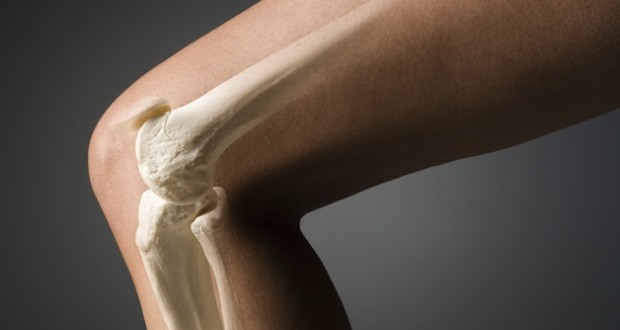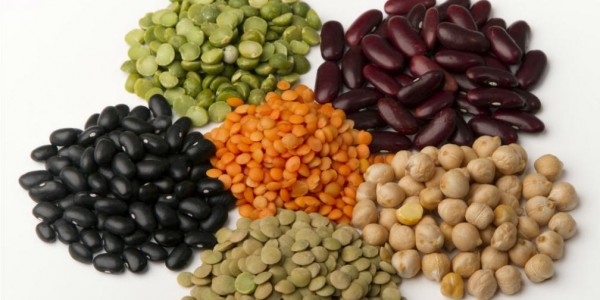Calcium is a mineral salt that performs well-known functions, such as helping growth and maintaining teeth and bones. It also has other very important roles in the body and its deficiency can explain the cramps, muscle tremors as well as possible heart rhythm disturbances. It is therefore necessary to ensure that you consume enough of it, both for sports performance and for maintaining health.
Why consume calcium
For muscle contraction
Calcium is the source of muscle contraction and is directly involved in energy metabolism. It is therefore the driving force behind any sporting gesture. A good calcium intake is essential to ensure a quality contraction, whether in weight training or in any other sport.
For strength
Calcium plays an essential role in nerve transmission since it is involved in all exchanges between neurons. It will therefore be indirectly involved in performance, especially in strength sports (bodybuilding, weightlifting, powerlifting, etc.) which exhaust the nervous system.
In addition, not having a calcium deficit is particularly important with heavy loads because calcium protects bone mass from fractures.
To gain muscle
Calcium is believed to stimulate insulin secretion, and insulin is directly involved in muscle anabolism (muscle building). However, there are few studies showing the link between calcium and insulin, so this information should be taken with a grain of salt.
But there is no doubt that optimal functioning of the body is necessary to generate any muscle gain; and therefore calcium, like all other nutrients, is not to be taken lightly.
The best sources of calcium for a vegetarian / vegan athlete
Acidifying diet and bone decalcification
For most physicians and nutritionists, dairy products are the only resource to meet official recommendations (800mg / 1000mg) per day.
Beyond the fact that this information is false (concerning dairy products), it turns out that the calcium intake of a food is not the only factor to take into account, it is necessary also rely on its acidifying or alkalizing potential.
Indeed, a food with a good calcium content but very acidifying will not be as beneficial as one might imagine because the body will have to use calcium to compensate for this excess acidity, in order to restore the blood pH to a neutral level (7.35) and find a good acid-base balance.
If the body needs calcium, it will go and use it directly where it is located, ie in the bones. This can cause bone decalcification over time, which can lead to possible osteoporosis.

It is the same phenomenon that occurs if a person does not necessarily consume a lot of acidifying foods but not enough calcium, the body will take some from the bone mass.
Concretely, the foods that will be the most to avoid because they are the most acidifying will be meat, fish and dairy products. If you are vegan, then you have no problem with that. If you are a vegetarian, you will need to be careful not to have too much dairy product intake while increasing the consumption of basic foods (fruits and vegetables for example).
There will still be a few foods to avoid while going vegan such as coffee, soda, and most ready meals and processed foods.
The best sources of calcium
Two things must be taken into account: the level of calcium (per 100g of product) but also its bioavailability (the capacity for assimilation by the body). Because if sesame seeds have a much higher calcium level than milk (975mg for sesame seeds against 125mg for milk), its actual assimilation is much lower (5% for sesame seeds against 30 to 35% for milk). In addition, other factors discussed below increase or decrease calcium uptake.
Dairy products: Obviously if you are a vegetarian, dairy products will allow you to easily reach the RDI (Recommended Daily Allowance). But as explained just before, I do not recommend that you make it your main source of calcium, because they are acidifying, which is counterproductive and harmful to the body.
In addition, milk has a high level of saturated fatty acids which should be avoided as much as possible. Finally, milk contains lactose which is often poorly digested by a good part of the population.
Plant-based milks enriched with calcium: It is a very practical alternative to dairy products, ideal for athletes who stop dairy products but want to keep their habits (eg glass of milk in the morning). There is something for everyone like almond milk , oats , rice , soybean …
Legumes: Red beans and white , chickpeas , lentils are legumes with a good proportion of calcium.

Green leafy vegetables like broccoli , spinach and kale cabbage are quite rich in calcium and this is very well absorbed by the body, so these are foods to be favored.
Seaweed such as nori , kombu or wakame are also great sources of calcium. Too often forgotten in the omnivorous diet, seaweed has an excellent nutritional profile.
Nuts are also good sources of calcium, the most interesting being almonds and Brazil nuts .
Water enriched with calcium is a good way to achieve RDI. The Hepar , the Courmayeur and the Contrex contain approximately 500mg of calcium per liter, or 50% of the RDI in calcium.
Food supplements: It seems that calcium needs are greater in bodybuilding, which could suggest that food supplements are good solutions. Be careful, however, of excess calcium which is not without danger, increasing the risk of prostate cancer and heart disease.
Rather than taking food supplements which are often poorly tolerated by the body because they are not natural, I advise you instead to make sure to increase the natural sources of calcium and optimize the ‘assimilation. According to some studies, it seems that calcium deficiencies are mainly linked to a poor rate of assimilation and too great losses (too acidifying food for example), than to too low an intake.
Increase calcium absorption:
- Vitamin D is well known to aid the absorption of calcium. The best part is that you only need to spend about 20 minutes in the sun each day to benefit from it. No excuse not to take the opportunity to go to train in a natural place .

Magnesium
-
- works in synergy with calcium and a bad balance between the two can be dangerous. It will therefore be wise not to leave aside foods rich in magnesium such as cocoa, seaweed, Brazil nuts or flax seeds, to take advantage of the calcium.
- Finally, there are nutrients that would also increase absorption such as probiotics and essential fatty acids, but this is mostly common sense . Eating qualitatively while avoiding junk food is bound to be beneficial and will significantly increase calcium absorption.
Decrease calcium assimilation:
- Tobacco, caffeine, excessive consumption of alcohol, salt and animal protein can decrease calcium absorption or increase its loss.
In summary, then, it’s not that hard not to be calcium deficient. A handful of almonds in the morning with 2 large glasses of calcium-enriched vegetable milk, a good portion of broccoli or spinach at noon accompanied by legumes, a salad including seaweed in the evening and 3 large glasses of Hepar spread over the day are already a very good foundation.
By spending more than twenty minutes in the sun while avoiding smoking and over-salting your dishes as much as possible, you optimize your intake as much as possible! The other vegetarian / vegan nutrition tips available by clicking here.
